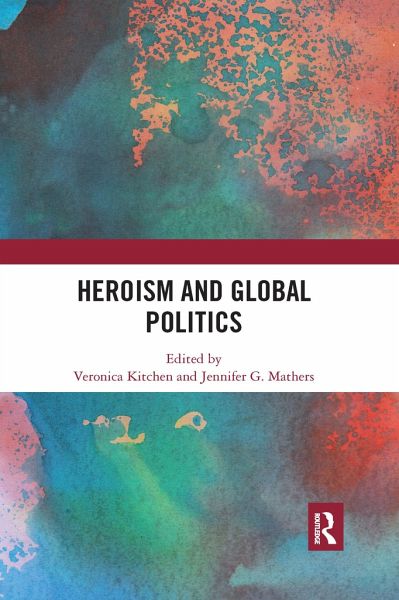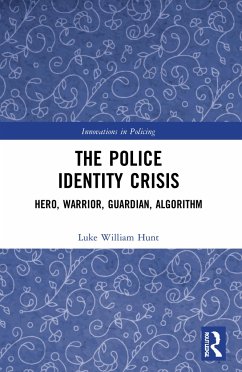
Heroism and Global Politics
Versandkostenfrei!
Versandfertig in 6-10 Tagen
45,99 €
inkl. MwSt.

PAYBACK Punkte
23 °P sammeln!
The rhetoric of heroism pervades politics. Political leaders invoke their own heroic credentials, soldiers are celebrated at sporting events, ordinary citizens become state symbols (or symbols of opposition), and high profile celebrities embody a glamorized, humanitarian heroism.Using analytical tools drawn from international relations, gender studies, war studies, history, and comparative politics, this book examines the cultural and political phenomenon of heroism and its relationship to the process of creating, sustaining and challenging political communities. Arguing that heroism is social...
The rhetoric of heroism pervades politics. Political leaders invoke their own heroic credentials, soldiers are celebrated at sporting events, ordinary citizens become state symbols (or symbols of opposition), and high profile celebrities embody a glamorized, humanitarian heroism.
Using analytical tools drawn from international relations, gender studies, war studies, history, and comparative politics, this book examines the cultural and political phenomenon of heroism and its relationship to the process of creating, sustaining and challenging political communities. Arguing that heroism is socially constructed and relational, the contributors demonstrate that heroes and heroic narratives always serve particular interests in the ways that they create and uphold certain images of states and other political communities.
Studying the heroes that have been sanctioned by a community tells us important things about that community, including how it sees itself, its values and its pressing needs at a particular moment. Conversely, understanding those who are presented in opposition to heroes (victims, demonized opponents), or who become the heroes of resistance movements, can also tell us a great deal about the politics of a state or a regime. Heroes are at once the institutionalization of political power, and yet amorphous--one can go from being a hero to a villain in short order.
This book will appeal to scholars and students working on topics related to international relations, gender, security and war studies, comparative politics, state building, and political communities.
Using analytical tools drawn from international relations, gender studies, war studies, history, and comparative politics, this book examines the cultural and political phenomenon of heroism and its relationship to the process of creating, sustaining and challenging political communities. Arguing that heroism is socially constructed and relational, the contributors demonstrate that heroes and heroic narratives always serve particular interests in the ways that they create and uphold certain images of states and other political communities.
Studying the heroes that have been sanctioned by a community tells us important things about that community, including how it sees itself, its values and its pressing needs at a particular moment. Conversely, understanding those who are presented in opposition to heroes (victims, demonized opponents), or who become the heroes of resistance movements, can also tell us a great deal about the politics of a state or a regime. Heroes are at once the institutionalization of political power, and yet amorphous--one can go from being a hero to a villain in short order.
This book will appeal to scholars and students working on topics related to international relations, gender, security and war studies, comparative politics, state building, and political communities.














